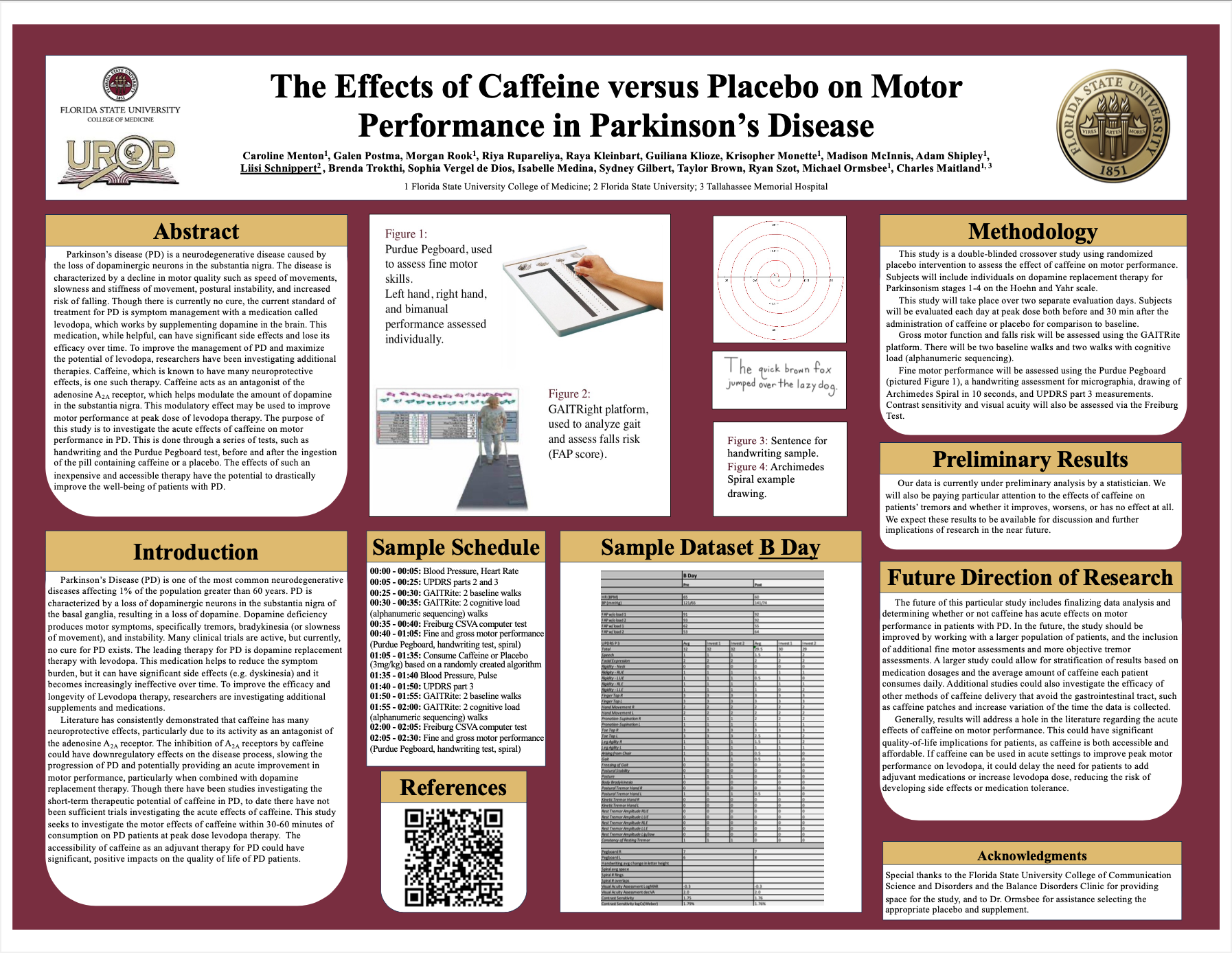Research Symposium
24th annual Undergraduate Research Symposium, April 3, 2024
Liisi Schnippert Poster Session 2: 10:45 am - 11:45 am/86

BIO
I am a first year from Tallahassee, FL majoring in Behavioral Neuroscience pursuing minors in both Chemistry and Child Development. Following my undergraduate degree, I plan to attend medical school with a desire to become a pediatric psychiatrist. I decided to participate in this project as I am passionate about behavioral health and creating more accessible resources and treatments for individuals with behavioral health disorders and disabilities.
The Effect of Caffeine versus Placebo on Motor Performance in Parkinson’s Disease
Authors: Liisi Schnippert, Caroline MentonStudent Major: Behavioral Neuroscience
Mentor: Caroline Menton
Mentor's Department: Medicine Mentor's College: College of Medicine Co-Presenters:
Abstract
Parkinson’s disease (PD) is a neurodegenerative disease caused by the loss of dopaminergic neurons in the substantia nigra. The disease is characterized by a decline in motor quality such as speed of movements, slowness and stiffness of movement, postural instability, and increased risk of falling. Though there is currently no cure, the current standard of treatment for PD is symptom management with a medication called levodopa, which works by supplementing dopamine in the brain. This medication, while helpful, can have significant side effects and lose its efficacy over time. To improve the management of PD and maximize the potential of levodopa, researchers have been investigating additional therapies. Caffeine, which is known to have many neuroprotective effects, is one such therapy. Caffeine acts as an antagonist of the adenosine A2A receptor, which helps modulate the amount of dopamine in the substantia nigra. This modulatory effect may be used to improve motor performance at peak dose of levodopa therapy. The purpose of this study is to investigate the acute effects of caffeine on motor performance in PD. This is done through a series of tests, such as handwriting and the Purdue Pegboard test, before and after the ingestion of the pill containing caffeine or a placebo. The effects of such an inexpensive and accessible therapy have the potential to drastically improve the well-being of patients with PD.
Keywords: Parkinson's Disease, Motor Performance, Caffeine


